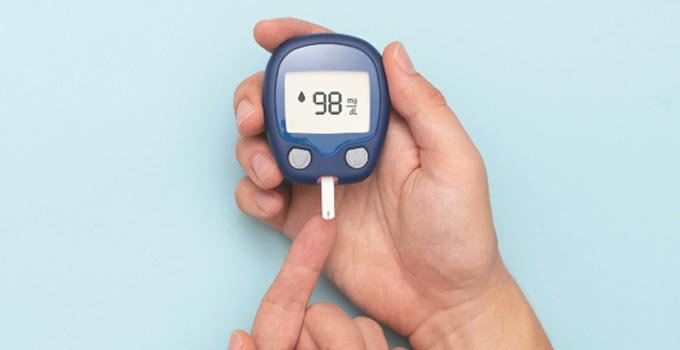Coping with Borderline Personality Disorder

Table of Contents
Understanding Borderline Personality Disorder
Borderline Personality Disorder (BPD) is a complex mental health condition that affects the way a person thinks, feels, and relates to others. People with BPD often experience intense and unstable emotions, have difficulties with self-image and identity, and struggle with maintaining stable relationships. Understanding the key aspects of BPD can help individuals cope with the challenges it presents.
- Emotional Dysregulation: Those with BPD may experience extreme and rapidly shifting emotions, which can be overwhelming and difficult to manage. Learning healthy coping mechanisms, such as mindfulness and grounding techniques, can help regulate emotions.
- Identity Disturbance: Individuals with BPD often struggle with a sense of self and may feel uncertain about their values, goals, and interests. Exploring personal values and engaging in activities that align with them can aid in building a stronger sense of identity.
- Impulsive Behavior: Impulsivity is a common symptom of BPD, which can lead to risky behaviors such as substance abuse, self-harm, or reckless spending. Developing strategies to pause and reflect before acting impulsively can help prevent negative consequences.
- Intense and Unstable Relationships: People with BPD may have difficulties maintaining stable and satisfying relationships due to fear of abandonment, idealization, or devaluation of others. Building healthy communication skills, setting boundaries, and seeking therapy can improve relationship dynamics.
- Treatment Options: BPD is treatable, and various therapies can be effective in managing its symptoms. Dialectical Behavior Therapy (DBT), Cognitive Behavioral Therapy (CBT), and medication can all play a role in treatment. It is important to consult with a mental health professional to determine the most suitable approach.
Living with Borderline Personality Disorder can be challenging, but with proper understanding and appropriate coping strategies, individuals can lead fulfilling lives. Seeking support from loved ones and mental health professionals is crucial in navigating the complexities of BPD and finding effective ways to cope.
Recognizing the Symptoms
Borderline Personality Disorder (BPD) is a mental health condition characterized by unstable moods, emotions, and relationships. It can be challenging to cope with BPD, but recognizing the symptoms is the first step towards understanding and seeking appropriate treatment. Here are some common signs and symptoms of BPD:
- Emotional instability: People with BPD often experience intense and rapidly shifting emotions. They may go from feeling happy to angry or sad within a short period.
- Fear of abandonment: Individuals with BPD often have a deep fear of being abandoned or rejected, leading to clingy or dependent behaviors in relationships.
- Unstable self-image: BPD can cause individuals to have a distorted and unstable sense of self. They may struggle with identity issues and have a hard time understanding who they are.
- Impulsive behaviors: Engaging in impulsive behaviors such as excessive spending, substance abuse, risky sexual activities, or self-harm is common among those with BPD.
- Intense and unstable relationships: People with BPD often have intense and stormy relationships. They may idealize someone one moment and then quickly switch to devaluing or hating them.
- Chronic feelings of emptiness: Individuals with BPD often experience a persistent sense of emptiness and inner void, leading them to engage in self-destructive behaviors to fill the void.
- Self-harming behaviors: BPD is frequently associated with self-harm, such as cutting or burning oneself, as a way to cope with emotional pain or to feel something when feeling numb.
- Difficulty regulating emotions: Those with BPD often struggle to manage and regulate their emotions effectively. They may have intense anger outbursts or difficulty calming down after being upset.
If you or someone you know is experiencing several of these symptoms, it is important to seek professional help. A mental health professional can provide a proper diagnosis and develop a treatment plan tailored to individual needs. Remember, effective treatment and support can help individuals with BPD lead fulfilling lives and manage their symptoms.
Seeking Professional Help
When coping with borderline personality disorder (BPD), seeking professional help is crucial for managing the symptoms and improving overall well-being. While self-help strategies and support from loved ones are important, a trained mental health professional can provide specialized guidance and treatment options tailored to individual needs. Here are some reasons why seeking professional help is essential in dealing with BPD:
- Accurate Diagnosis: A mental health professional can conduct a comprehensive evaluation to accurately diagnose BPD. This is important as BPD shares symptoms with other mental health disorders, and an accurate diagnosis ensures the right treatment approach.
- Therapy: Psychotherapy, specifically Dialectical Behavior Therapy (DBT), is considered the gold standard treatment for BPD. A therapist with experience in DBT can teach skills to manage intense emotions, improve interpersonal relationships, and develop healthier coping mechanisms.
- Medication Management: While medication is not a cure for BPD, it can help manage certain symptoms such as depression, anxiety, and impulsivity. A psychiatrist can prescribe and monitor the effectiveness of medications, if necessary.
- Support and Validation: BPD can lead to feelings of invalidation and instability in relationships. Working with a mental health professional provides a safe space to express emotions, receive validation, and work through interpersonal challenges.
- Building a Support Network: A therapist can help individuals with BPD identify and build a support network. This may include connecting with support groups, family therapy, or involving loved ones in the treatment process.
- Crisis Management: BPD can sometimes lead to self-harming behaviors or suicidal thoughts. A mental health professional can help develop a safety plan and provide crisis intervention strategies to manage such situations effectively.
Remember, seeking professional help is not a sign of weakness, but a courageous step towards a healthier and more fulfilling life. If you suspect you may have BPD or have already been diagnosed, reach out to a mental health professional who specializes in personality disorders for an accurate assessment and appropriate treatment.
Developing Coping Strategies
Living with Borderline Personality Disorder (BPD) can be challenging, but developing effective coping strategies can greatly improve your quality of life. Here are some strategies to help you manage your symptoms and navigate daily challenges:
- Seek Professional Help: Working with a mental health professional who specializes in BPD can provide you with the necessary guidance and support to develop coping mechanisms specific to your needs.
- Practice Mindfulness: Engaging in mindfulness exercises such as meditation or deep breathing can help you stay grounded and present in the moment, reducing anxiety and emotional dysregulation.
- Build a Support Network: Surround yourself with understanding and supportive individuals who can provide emotional support during difficult times. Joining a support group for individuals with BPD can also be beneficial.
- Develop Healthy Boundaries: Learning to set and maintain healthy boundaries is crucial in managing relationships and avoiding emotional triggers. Communicate your needs assertively and prioritize self-care.
- Engage in Self-Care: Regularly engage in activities that bring you joy and relaxation. This can include hobbies, exercise, spending time in nature, or practicing self-compassion.
- Implement Dialectical Behavior Therapy (DBT) Skills: DBT is a specialized form of therapy that focuses on teaching skills to regulate emotions, tolerate distress, and improve interpersonal effectiveness. Learning and practicing these skills can be instrumental in managing BPD symptoms.
- Challenge Negative Thoughts: BPD often involves distorted thinking patterns. Practice identifying and challenging negative thoughts, replacing them with more realistic and positive ones.
- Develop Healthy Coping Mechanisms: Engage in healthy coping mechanisms such as journaling, listening to music, engaging in creative outlets, or participating in relaxation exercises to manage stress and emotions.
- Take Care of Physical Health: Prioritize your physical well-being by maintaining a balanced diet, getting regular exercise, and ensuring adequate sleep. A healthy body can better support emotional well-being.
- Stay Committed to Treatment: Consistency is key in managing BPD. Stick to your treatment plan, attend therapy sessions regularly, and communicate openly with your healthcare provider.
Remember, coping with BPD is a journey, and what works for one person may not work for another. It’s essential to find the coping strategies that resonate with you and adapt them to your unique needs. Be patient with yourself and celebrate small victories along the way.
Building a Support System
When coping with Borderline Personality Disorder (BPD), having a strong support system in place can make a significant difference in your overall well-being. Here are some suggestions on how to build and maintain a support system:
- Therapy: Working with a qualified therapist who specializes in BPD can provide you with the guidance and tools needed to manage your symptoms effectively. Regular therapy sessions can help you gain insight into your condition and develop coping strategies.
- Family and Friends: Share your diagnosis with trusted family members and friends who can provide emotional support. Educate them about BPD so they can better understand your experiences and offer assistance when needed.
- Support Groups: Joining a support group for individuals with BPD can connect you with others who are going through similar challenges. Sharing experiences, advice, and coping strategies in a safe and non-judgmental environment can be invaluable.
- Online Communities: Participating in online forums and communities dedicated to BPD can provide a sense of belonging and support, especially during times when in-person interactions may be limited.
- Self-Care: Building a support system starts with taking care of yourself. Engage in activities that bring you joy and help you relax. Prioritize self-care practices such as exercise, healthy eating, and getting enough sleep.
- Open Communication: Be open and honest with your support system about your needs and boundaries. Effective communication can help them understand how to best support you and avoid potential triggers or conflicts.
- Emergency Plan: Develop an emergency plan with your therapist and trusted individuals in your support system. This plan should outline the steps to take during a crisis, including who to contact and what strategies to implement.
Remember, building a support system takes time and effort. Be patient with yourself and those around you as you navigate the challenges of BPD. With the right support, you can lead a fulfilling and meaningful life.


























